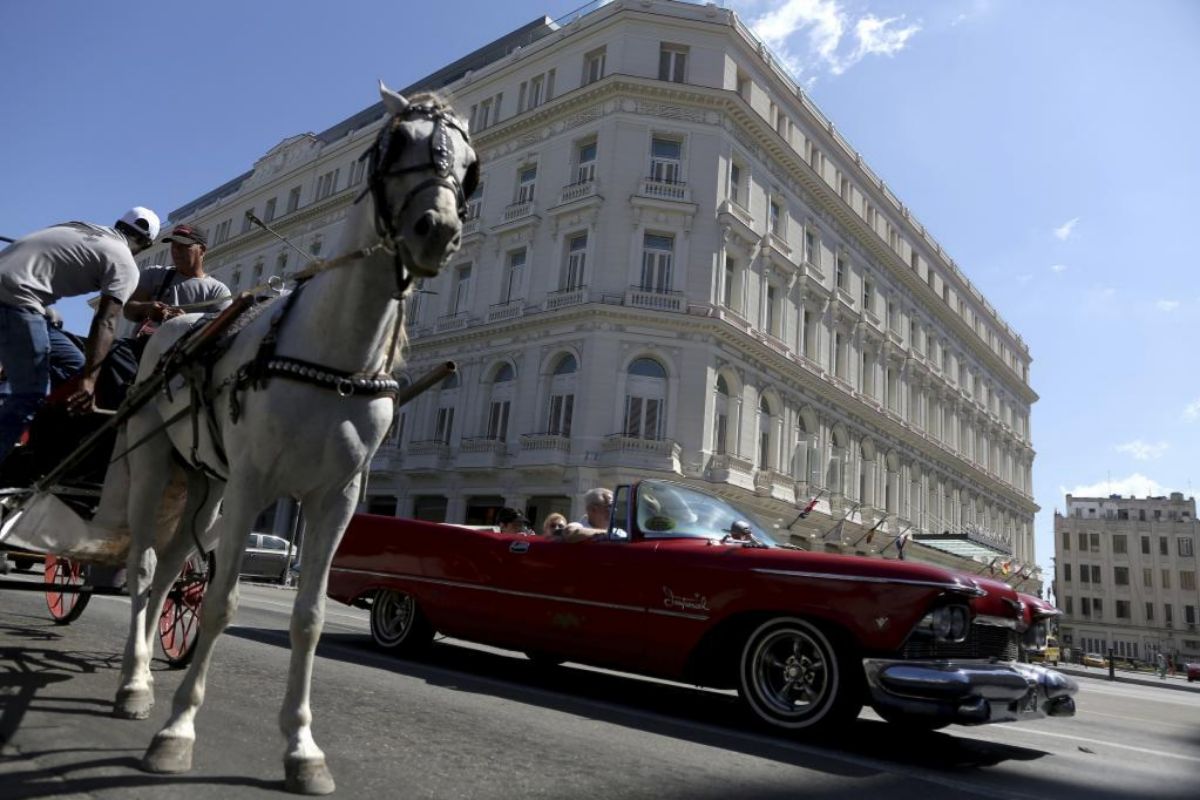Gabriel Escarrer, executive vice president of Meliá, has been banned from entering the US since last November . A direct consequence of the litigation that the hotel chain maintains with descendants of expropriated Cubans who claim part of the profits of two of their establishments in the Caribbean country. But for Andrés Rivero Mestre, a lawyer who defends several of the demanding families, it is a matter of big game: if his strategy prospers the plan is to claim compensation for the entire Meliá hotel plant in Cuba and extend it to the rest of the chains there, including the Mallorcan Iberostar, Barceló or Blau Hotels.
«We present the case of Meliá on May 20. I remember it well because it is the day of the independence of Cuba ». The firm of Rivero Mestre, based in the state of Florida, defends the interests of several families -Sánchez-Hill, Mata, López Regueiro, Echevarría ...- with claims about the activities of 15 hotels out of the total of 39 that Meliá has in Cuba.
However, Rivero - a Cuban descendant of Spaniards - will play in court with the letter of Class Action, a figure of US law translatable as a “class action lawsuit” with which he could recognize the power to also claim on behalf of the rest of those affected . As a small group of consumers litigating in defense of the entire group. "If it thrives we will claim to represent all the people who had land or hotels in Cuba, which today are the 39 that Meliá has."
In the letter sent by the US State Department to Escarrer, he was urged to negotiate with the plaintiffs what Meliá described as "not acceptable" conditions. What would you get to ask for the activity of the entire hotel chain? "We claim under the law three times the value of the 39 hotels, which obviously already exceeds 150 million dollars," about 140 million euros.
Expertise
Rivero's office hired an appraisal that, he says, valued at more than five million dollars one of the less expensive a priori hotels. "If that is the least valuable, I estimate that the set would exceed 150 million, but the truth is that I don't know, I would be speculating if I gave an exact figure." To perform these appraisals, the expert considers values such as the rate and the percentage of occupation in recent years.
However exorbitant the claims may seem, the whole process takes on a different dimension with the role that the Trump Administration plays. This has dusted off two articles of the Helms-Burton Act that cover the claims of expropriated during the Cuban Revolution by the Castro authorities and empowers the State Department to initiate actions against "foreigners who have confiscated property of US nationals or trafficked with such property" . That is exactly what he has done with the Escarrer veto.
For the European authorities and analysts, it is a harassment strategy engineered by Trump that aims to cool foreign investments and trade with Cuba.
It is generally not being given much travel, although just in case the European Union introduced a legislative figure to protect the interests of victims of US extraterritorial legislation. It is what is known as Statute of Blocking, the umbrella under which the Majorcan hotel chains and other companies claim to feel safe.
In any case, Rivero's office maintains close contact with the State Department. "We have asked them to impose sanctions and do everything possible: remove visas, whatever, in order to boost the actions of my clients."
Claim via civil
But even with the support of the Trump Executive, what future does Rivero see for his civil claims? A court in Palma de Mallorca already filed an action in another office against Meliá in September for the same reason. The judge declared herself not competent to rule on land expropriations in other countries. In addition, with the question of the Statute of Blockade the options of the plaintiffs seem very limited. But the Cuban lawyer says he has another strategy up his sleeve.
The defense alleges that the lawsuit must be dismissed because the Miami court that is taking the case - the Federal Court of South Florida - does not have jurisdiction to judge that extraterritorial activity. Rivero's strategy is to focus the current process on the websites that sell hotel stays in Cuba, such as Expedia or Booking, and leave Meliá out for the moment: the reasoning is that these platforms would be responsible because they market rooms that can be hired from Florida.
"If we win with Expedia and Booking we will have all the foundation to include Meliá again", since they can also market their rooms to Florida consumers from their website. "Same as Iberostar and the rest."
It is here that Rivero hopes to expand the battlefield, as long as the judge gives the reason (must be pronounced at the end of March). The firm maintains claims in the drawer against a seventy hotels that would include establishments of Iberostar (second Majorcan firm with more presence with 18 hotels), Barceló or Blau Hotels (of the Roxa Group), in addition to the rest of hoteliers from other countries.
Meanwhile, all Mallorcan firms have activated their legal defense mechanisms against Trump's double offensive and private law firms. "That I know at least there are four more law firms with this issue," says Rivero. That and Uncle Sam.
According to the criteria of The Trust Project
Know more- Cuba
- European Union
- Palma de Mallorca
LeyEscarrer, CEO of Meliá, is banned in the US for hotel activity in Cuba
Politics The geriatric of Castellón, in limbo for another pulse between the tripartite and the Department of Oltra
Politics Non-independence Catalanism is mobilized as a political alternative

